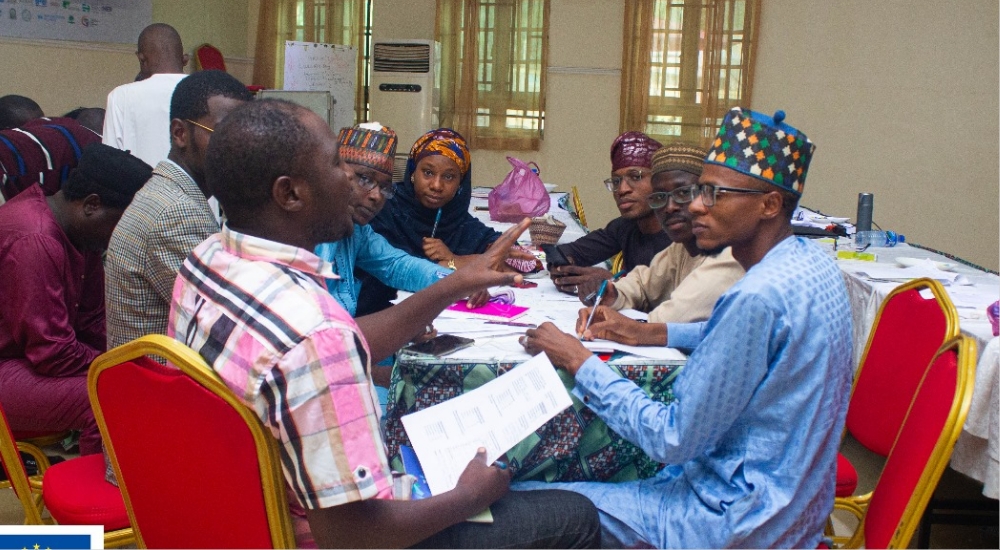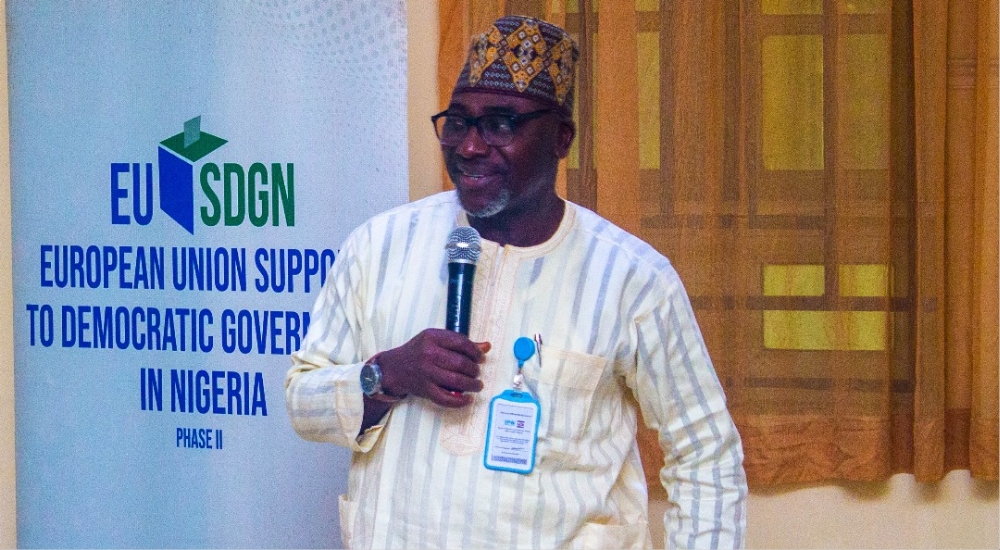Use Fact-Check, FOI To Hold Politicians Accountable On Campaign Promises – IPC Urges Journalists
The International Press Centre (IPC) in collaboration with the European Union (EU), has urged Journalists to embrace the use of fact-checking tools and Freedom of Information Act (FOIA), to hold politicians and government officials in government offices accountable on how they utilise resources.
The Executive Director of IPC, Mr. Lanre Arogundade, who spoke to THE WHISTLER in an interview at Kaduna, during a two day capacity building on Combating Information Disorder In Democratic Governance Reporting Using Fact-Check And FOI tools, an event jointly hosted by IPC and EU, explained why journalists need to fact-check news.
Advertisement

According to Arogundade, journalists need to fact check news because we are in the age of misinformation and disinformation, where so much unverified news is making rounds on social media and the Internet.
He explained that it’s the responsibility of journalists to provide reliable information for citizens, adding that citizens need such information to make informed judgement or informed opinion and also make informed choices even during elections.
The IPC boss said: “If our information is distorted, if our information is false then the public will not be able to rely on us for the kind of information that will make society better.
Advertisement
“We also need to do fact checking because we don’t want politicians to get away with falsehood. We don’t want politicians to get away with unfulfilled campaign promises. We also don’t want politicians to get away with claims that are not true, especially when they are talking about their achievements.
“It is our obligation as a society to ensure that information that comes from public officials, and that we disseminate are accurate and reliable.”
He further explained that fake news have done much damage to a very large extent in our society, to an extent that people no longer know what to believe and what not to believe.
The veteran journalist noted that the dangers of disinformation and misinformation can lead to panic and anxiety, especially in moments of crisis.
He said it can also cause harmful conduct, citing examples with how so much falsehood was spread during ebola, when people were asked to bathe with salt to cure the virus, and other misinformation spread during Covid-19 pandemic.
Advertisement
He also cautioned journalists to desist from exaggerating figures and to also ensure that they use multiple sources to get reliable news, including the use of data obtained from relevant authorities.
“When you fail to fact check, you may have a failed journalism,” he said.
Arogundade said that fake news have rubbed off on what people believe to be the traditional media, speaking of the newspapers, the radio and television.
He highlighted that citizens tend not to trust journalists anymore because they want to equate them with social media.
“They forget that we are professional journalists, we are not citizens’ journalists. We are guided by the code of ethics. And what we are trying to do when we talk about fact checking is to remind journalists of that basic principle of the code of ethics which is exercising the discipline of verification. So we must verify, verify and verify,” he said.
The IPC boss therefore taught journalists how to use different fact-checking tools on Osint Essentials, and other tools outside it, like TinEye, Google reverse images, including how to archive vital information using Archive.is among others.
Advertisement
Edaetan Ojo, Executive Director Media Rights Agenda (MRA), who was also present at the workshop, taught journalists how to use FOI to hold government officials accountable.
He said said FOI laws are designed essentially as a check against corruption & to hold public authorities accountable to citizens.
He further explained that by systematically using the FOI Act, journalists can target certain types of information & materials, to reveal corruption, abuse of public trust, abuse of power or other wrongdoings.
“Ultimately, this can help to push back on corruption & improve accountability.
“The Freedom of Information Act is a tool that can enable regular access to information & data, which in turn, can assist a journalist in becoming a prolific reporter.
“The FOI Act is also an extremely valuable tool for journalists who want to fact-check information; conduct investigative reporting, and to hold the government as well as government officials and institutions accountable,” Ojo said.
He highlighted that information obtained through FOI requests made pursuant to the FOI Act can be used to hold government officials & institutions accountable.
“You can use such requests to scrutinise the statements & actions of government officials & institutions, by doing so, you can ensure transparency & accuracy in information dissemination.
“You can use the information obtained through FOI requests to reveal inconsistencies in public statements or reports issued by government officials or institutions.
“You can compare the information obtained through FOI requests with publicly available data to identify any discrepancies & bring such misrepresentation to light,” he added.



